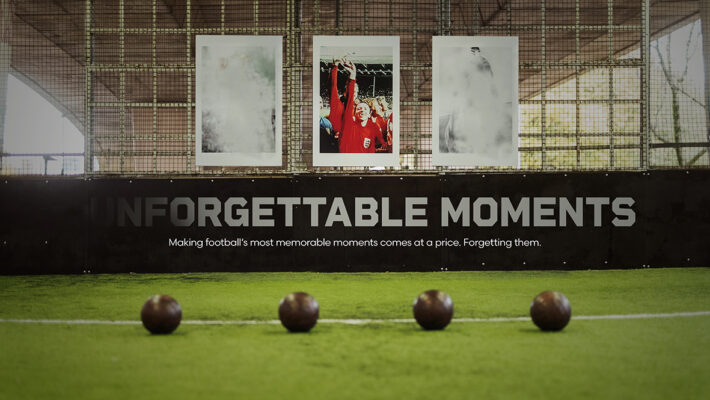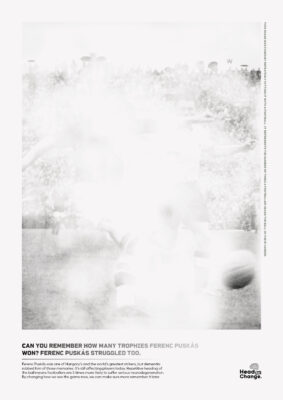
Brain health charity, Head For Change, is working with Leith on a campaign that highlights the link between playing football and dementia.
With the World Cup approaching, Head For Change and Leith have worked in partnership to launch a health campaign that raises awareness about the link between football headings and dementia.
In the UK, roughly 1.5 million people play football at least twice a month. In a game setting across a 10-year career, a football player will head the ball roughly 7,600 times. When headings in practices are included, the number of times a footballer will head a ball in their career skyrockets to roughly 70,000 times.

Research from Professor Willie Stewart has linked repetitive headings of the ball to the onset of the disease among professional players. The players of the world’s most popular sport have created memories for millions of people. Yet in doing so, their risk of developing a type of dementia increased. It was the statistic that professional footballers are five times more likely to develop a type of dementia that led Leith to develop a campaign visually showing the impact the long-term effect headings can have.


The campaign took some of the most unforgettable images of football history and hit them with a football, using the same force and amount of times a footballer heads a ball during their career. The results show how repetitive impact can fade and remove the memory, symbolising how the brain becomes damaged over time. Each image featured players who sadly passed away due to dementia. These are just a few of the very many that have been, or are currently, affected by this disease. With more being diagnosed each year, it’s a problem that isn’t fading away any time soon.
John McPartland, Creative Director Health, Leith: “The data that surrounds the link between heading and dementia is worrying. We wanted a way to visualise this so that everybody can see the effects repetitive impact can have on the brain. And by fading the most memorable moments of the World Cup, the impact couldn’t be clearer.”
Judith Gates, Chair & Cofounder, Head For Change: “Memories are fading for footballers affected by sports related dementia. Clarity is increasing about the dangers of repetitive head impacts. We are at a tipping point. The time is right for the world of football to do the right thing. Let’s prevent the footballers of today from becoming the victims of tomorrow.”
The making of video and impacted images will be displayed across social media ahead of the World Cup.





